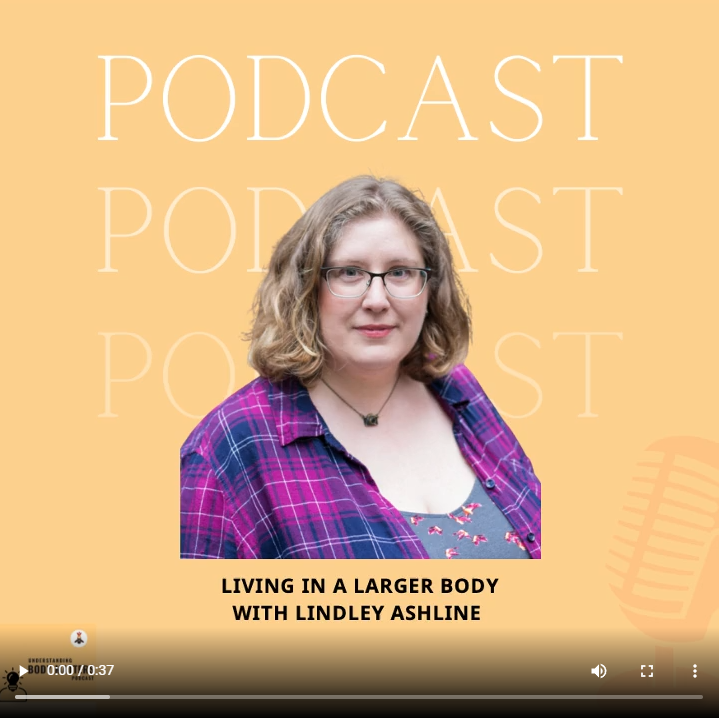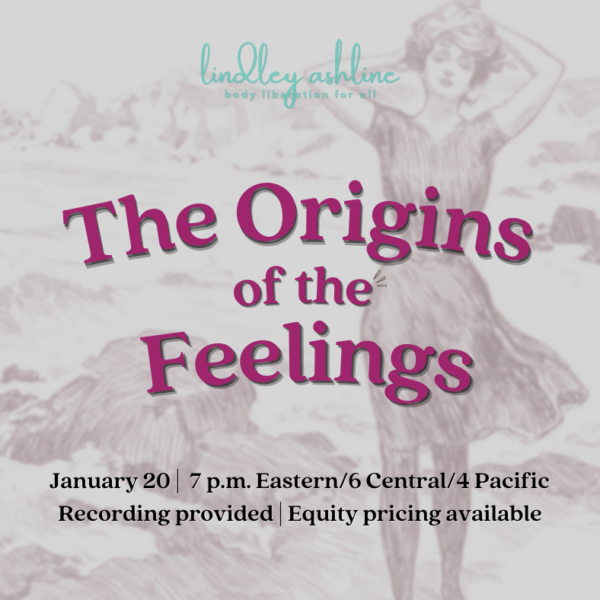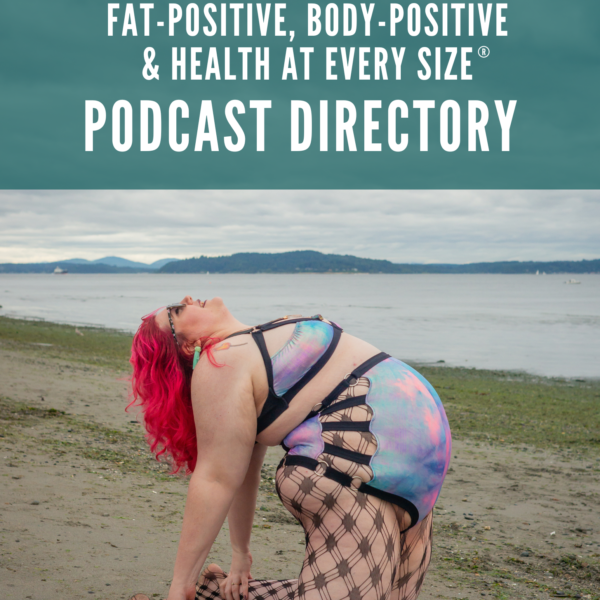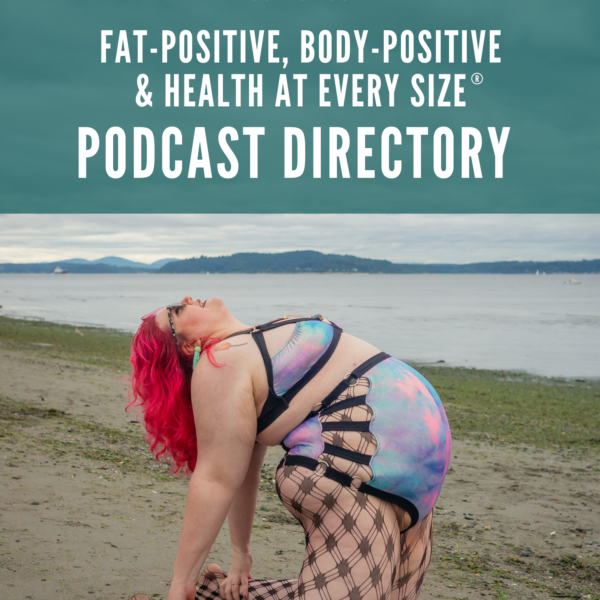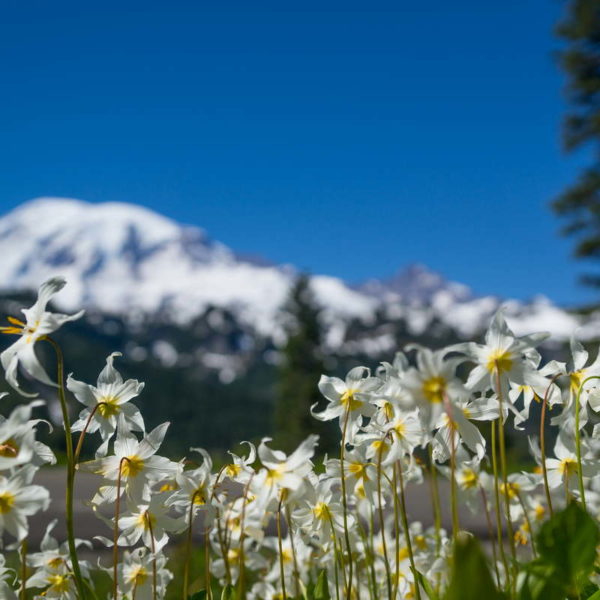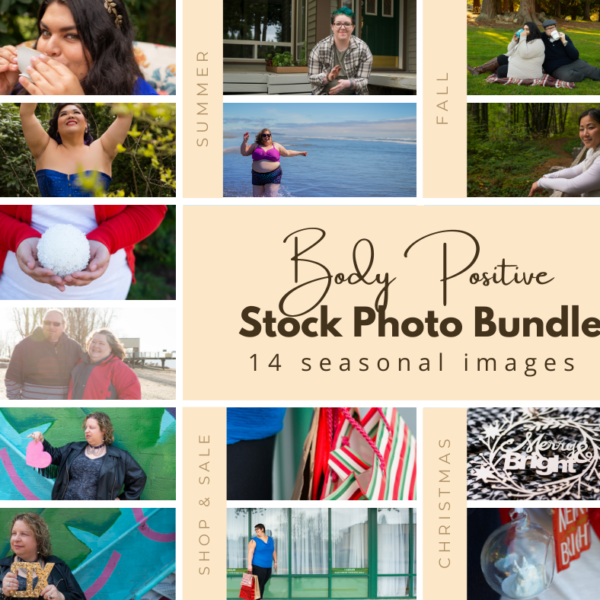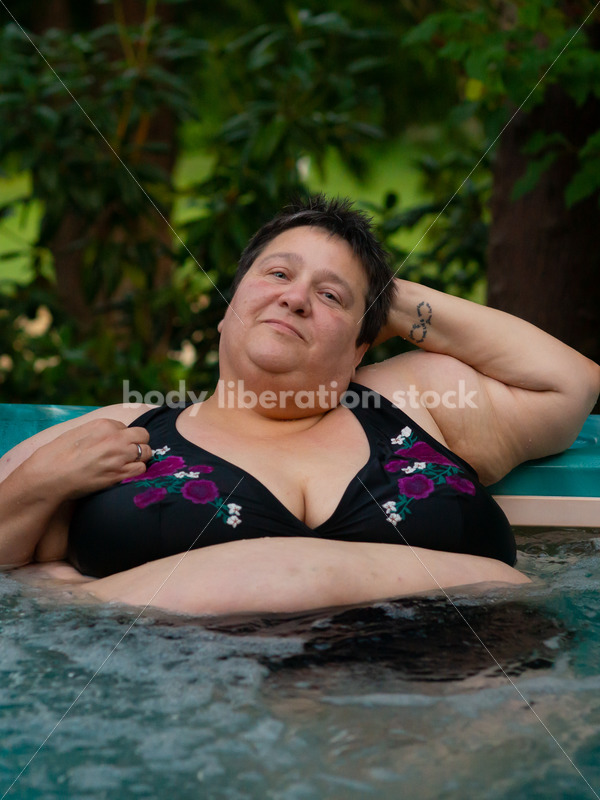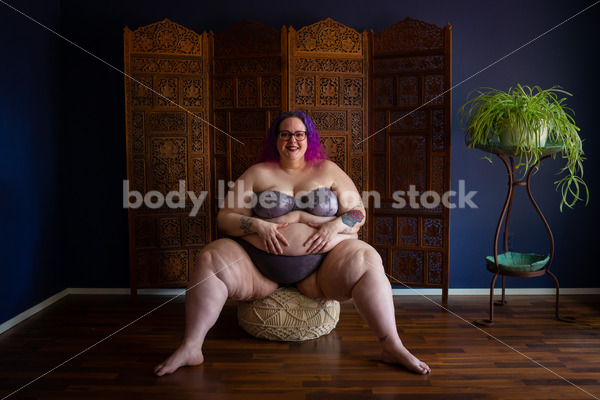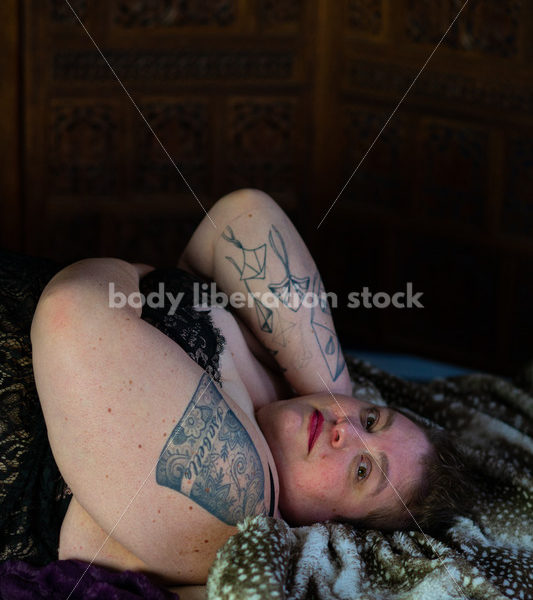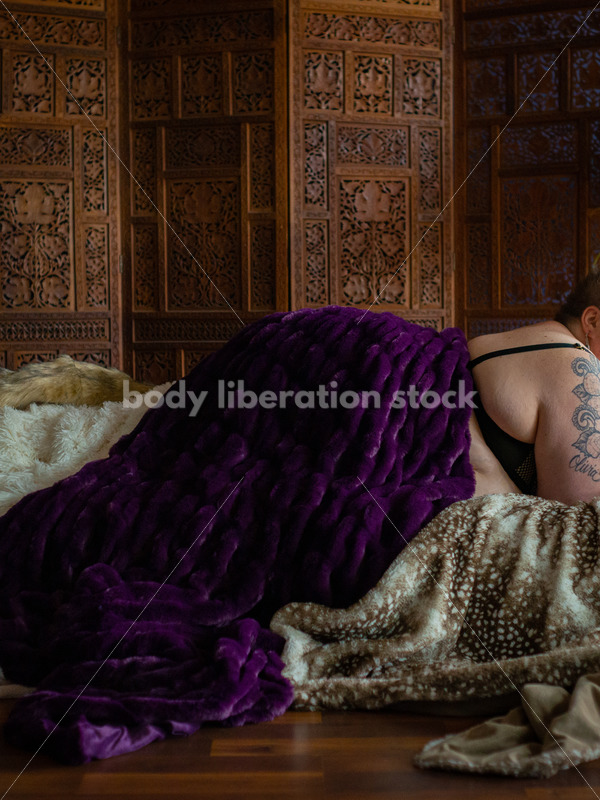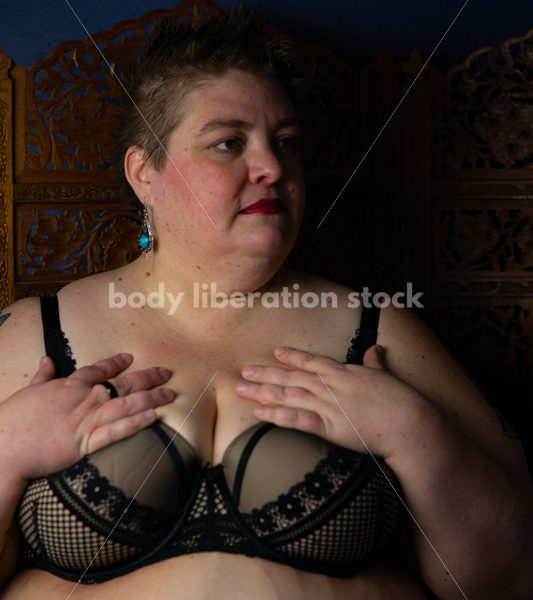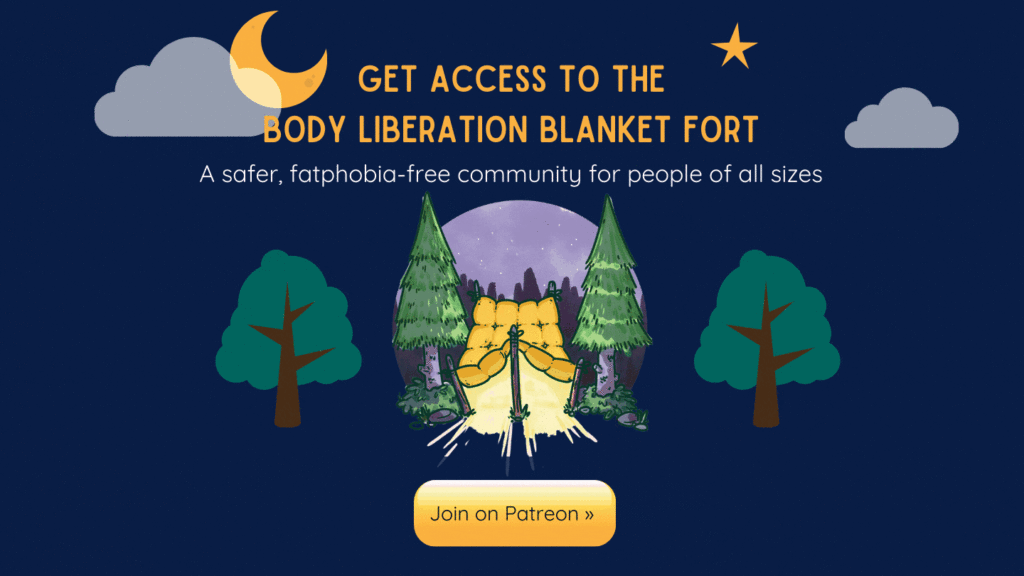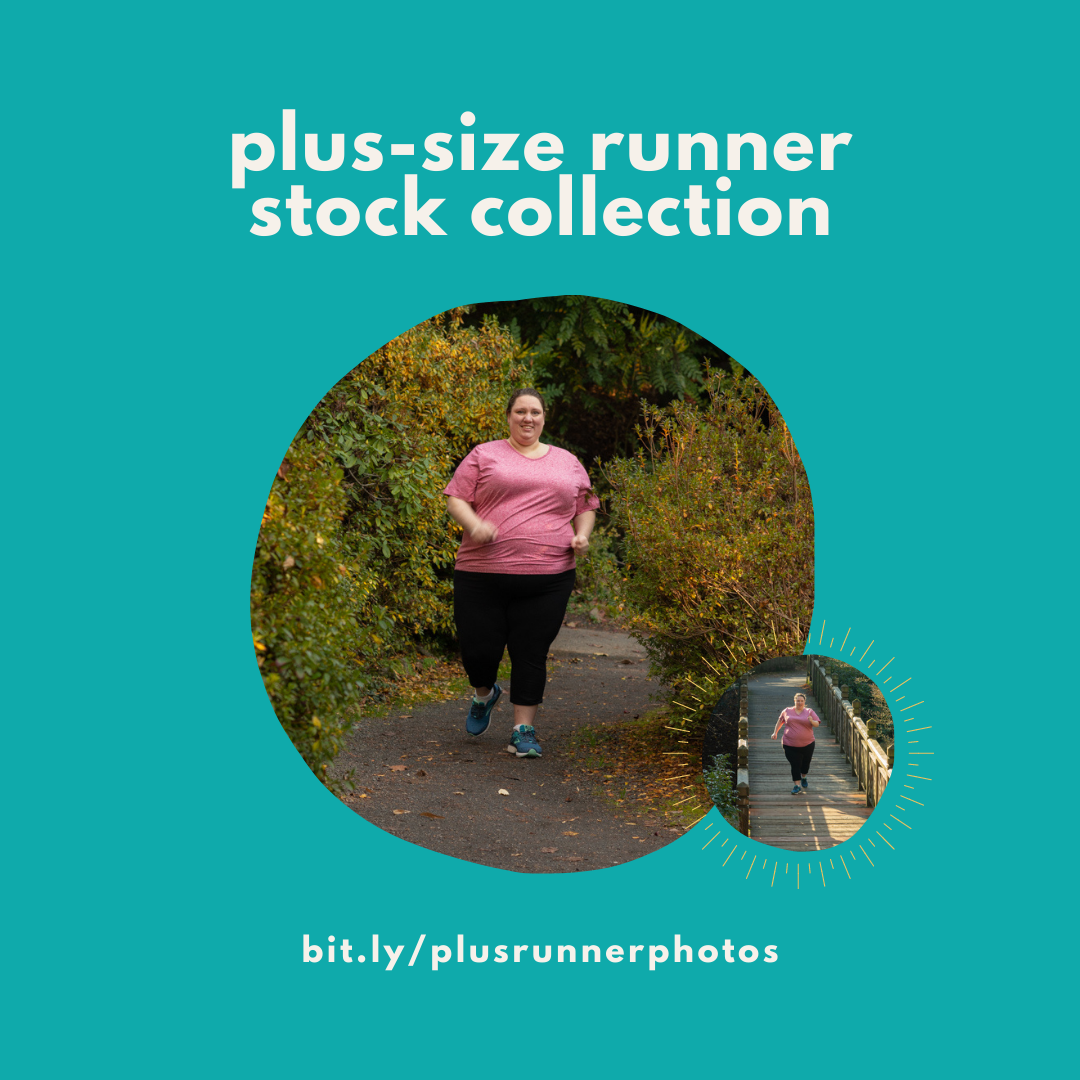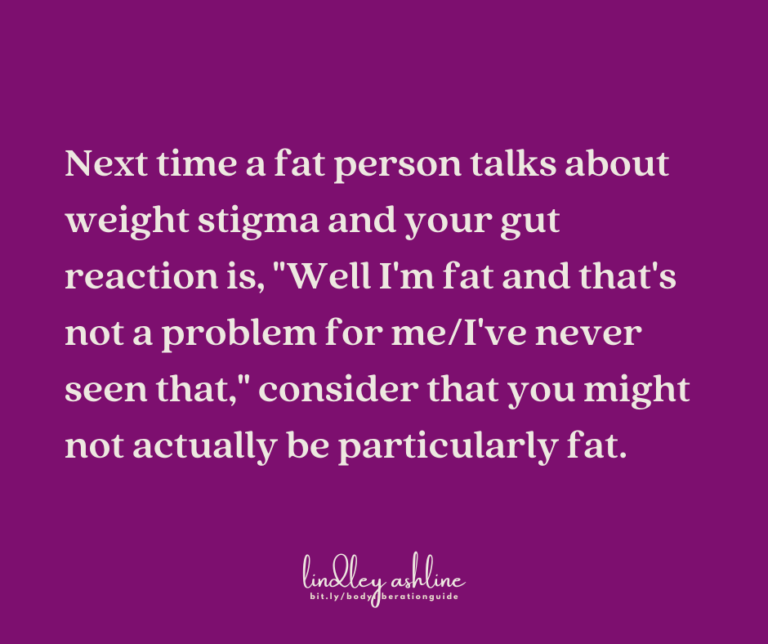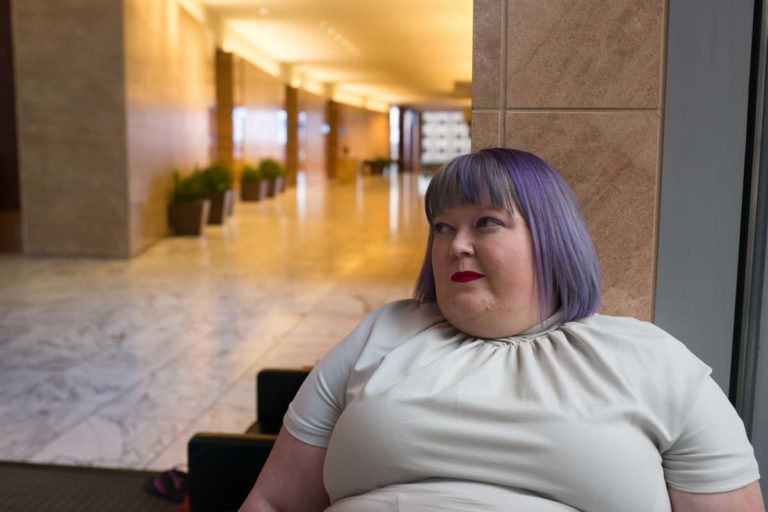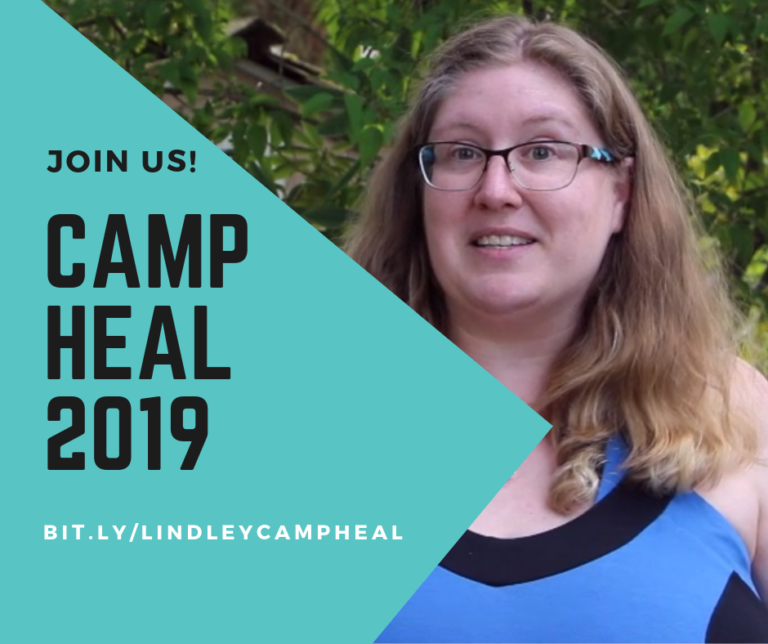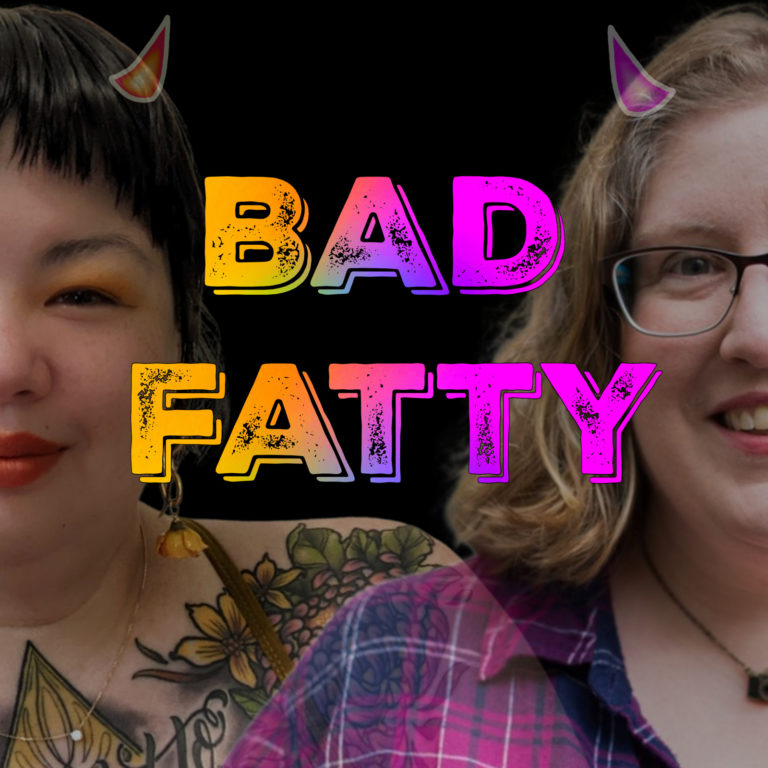Listen: Lindley on Living in a Larger Body with the Understanding Body Matters Podcast
I’ve had the honor of being on a number of Australian podcasts, and every time, I wonder the same thing: What do they think about my American accent??
More importantly, it is very cool to have the opportunity to speak virtually all over the world about body acceptance and fat activism, most recently with the Understanding Body Matters podcast from BodyMatters Australasia.
In this episode, we talk about:
- A recent challenge I’ve found ways to address
- How our opportunities and challenges change with our privileges
- The risks and rewards of speaking out as a business owner
- My main message to others
- What and who are we missing out on when we exclude fat people?
Listen or read the transcript below, and check out BodyMatters Australasia’s programs for eating disorder treatment.
Episode Transcript
Intro: Welcome to Body Matters Podcast, where we bring to you roaring inspiring content, all things to do with body positivity and eating disorder recovery.
Host: Welcome back to another episode of the Understanding Body Matters Podcast. On today’s episode, we have brought in a very special guest all the way from America in the US Linley. Now we speak to Linley on all things to do with living in a larger body; a very important topic that we think does need more exposure and more of a conversation to be spoken about. So in this episode, we will be listening to Lindley’s story, how she’s used her story with her career at the moment and what her main message is to individuals she talks to and advocates for today. So if you would be interested in listening, please stay tuned and we’d love to know your thoughts.
Hi Lindley, welcome to the Body Matters Podcast. We’re very, very excited to have you on board and thank you for joining us. I know it’s completely different time zones, so this is a perfect little fit in, so thank you for joining us today.
Lindley: I’m so excited to be here.
Host: Good. So to start off with, why don’t you just introduce yourself for those who may not know who you are a little bit of background information as well?
Lindley: Sure. My name is Lindley Ashline and I’m in the states. I live outside Seattle, Washington, and I’m a photographer, writer and body acceptance activist. I do a lot of work around body image and except in your body, but also, the systems of power that make us feel the way we do about our bodies.
Host: Amazing. So to start off with, we do ask each guest that we do have on the podcast just to get to know them a little bit more. If there’s a challenge that they have faced recently and how they have overcome that. It can be as relaxed as you want or it can be as personal, it’s completely up to you.
Lindley: So, I mentioned that I live outside Seattle, and this is the top of mind for me right now, because here in the states on the west coast, we’re in early autumn so it’s starting to get dark. I moved to Seattle in 2014 from the US east coast. And here, the seasons are much more even. And what that means is that it’s chilly most of the year and it’s gloomy, most of the year. In Fahrenheit, it tends to be 50 and raining for most of the year. I knew that when I moved, I mean, you know, Seattle is famously rainy, but I didn’t quite understand how dark it would be for how much of the year. And for the first few years, I really struggled with it. And so over time, I feel really good that I have sort of made this work for me as much as I think it’s going to.
New in the Body Love Shop
I don’t want to leave, I love this area, it’s just that winter doesn’t necessarily love me back. So I worked with my doctor, we checked my vitamin D; we made sure that it wasn’t anything going on there. But I’ve sort of tried to lean into it. And so last winter during the pandemic, my pandemic hobby was growing house plants. It had this really cool, unexpected benefit that I was also getting grow lights, which were full spectrum lights. And having fresh green things around all winter and also full spectrum lights, made a huge difference in my quality of life in the winter. And so, I’m really, I won’t say excited for the bloom this year, but I’m feeling much better about it because I can do these things that sort of mitigate that gloom that also bring me joy. I love growing plants. And so, now I have fresh flowers and beautiful big leaves around all the time. And so it’s just top of mind as I’m heading into this winter, like, what else can I do? And so maybe I’m going to get more cozy blankets that I really like, or maybe I’ll get some new tea, some hot tea or something, but for the first time it’s like, oh, how am I going to deal with the cozy season? You know, what am I going to do to enjoy this as opposed to oh, no, it’s coming. So, that’s been a cool change.
Host: It’s good that you have all of those in place now that you are coming up to the colder months. I think we are coming into summer, so we’re spring now. Australia is quite hot, but it’s a bit cold at the moment, but I’m obsessed with buying plants as well. I think anyone is now… everyone and anyone is buying plants everywhere.
Lindley: It’s true. It’s true.
Host: Like having your own child.
Lindley: Yeah. And the thing is that, you know, you learn by failing at it, and so it’s very freeing once you accept that the way you learn is by killing plants.
Host: Oh, no, I can’t say most of mine has survived.
Lindley: I’ve actually had a surprising success rates which means that I now have many more plants than I expected because most of them actually live.
Host: I know. That’s good though. You’re going to have a… you have a forest in your home.
Lindley: I do. I do. It’s a good problem to have.
Host: It is. I think it’s good that you had little changes that you can make that’ll make that season a whole lot better for you. So, I think we’ll just dive into the podcast episode. My first question, obviously, the topic for today’s podcast is “Your lived experience”, so to start off with, I guess we just want to ask what challenges that you have overcome during your journey.
Lindley: Before I start talking, I want to clarify that when I say the word fat, I think listeners are already familiar with this. But when I say the word fat, I’m using it as a neutral descriptor of my body and other bodies that are the same size as mine. I’m not using it as an insult or like putting myself down. Living in a fat body, I really struggled with discrimination due to my body size; both in my previous corporate life and now as a small business owner. I’ve had interviews when I was doing corporate work, interviews for jobs where it would go beautifully until I walked into the room for the in-person interview, and suddenly they get very quiet. And you could tell, you know, and as a small business owner, there’s been quite a bit of the same people don’t necessarily want to network with me. People don’t necessarily want to promote me in the way that they would someone who’s body size is more socially acceptable. And that has been such a challenge over time because, and it’s something that every person who is in a larger body faces, to different degrees.
New at Body Liberation Stock
And it’s such a challenge because you see people around you who are doing the same thing, maybe they have the exact same type of business or they’re in the same career, and they’re simply getting opportunities that you don’t. And it’s hard to talk about this. It’s very vulnerable to talk about because not only are there lots of different factors that affect what our careers are like, and then what opportunities we do and don’t get. And for instance, I’m a fat white woman, if I were a fat white man; my opportunities might be a little different. If I were a fat black queer woman, I would have many, many less opportunities that I’ve had. So it’s a very vulnerable thing to talk about at least in part too, because it’s easy for people who don’t want to recognize that discrimination to try to convince you it’s all in your head.
Host: A hundred percent.
Lindley: That’s been one of the primary challenges. And the way I eventually reacted to that was just, I got mad, honestly. And in many other places, I’ve talked about anger, anger and oppression; because you can either… there are two ways that you can handle being discriminated against or any sort of adverse circumstances. You can put the blame for that on yourself. You can say, well, of course, I couldn’t take that airline flight because my body’s bad and didn’t fit into one seat. Of course I didn’t get that job because my body is bad and you could tell that it was bad when I’m walking in the room. Or you can turn that anger outward where it belongs.
Like, if I can’t fly on an airplane, it’s because someone designed that seat in a way that excluded me. If I’m getting turned down for jobs because of my body size, that’s because of people’s bias. That’s actions that other people are taking; the blame lies with them, not with my body. And for many, many years, like many people, I internalized that, you know, I took the blame onto my body or my brain or whatever. But eventually, when I got into doing my own business and discovered that the same discrimination was still there, I got mad. I work hard, I’m smart, I’m friendly, I’m ambitious, I don’t deserve to be treated poorly. And even if I weren’t smart and weren’t ambitious, and I don’t know, if I were all the terrible things that people think about fat people, I would still deserve to be treated with respect and dignity.
Host: And should.
Lindley: Yeah, so I got mad. And so, I ended up dealing with those challenges of discrimination by getting really loud about being fat. Because it seems so much that people wanted me to be quiet and to shrink and to go away and to not take up space. And as I grew in my own body acceptance, and I grew in my own confidence; I would just get mad and be like, no, I’m going to be even louder about it. And so, that was how I became an activist in addition to just a photographer, because I couldn’t see this happening around me and not talk about it.
Host: Yeah, exactly. I think it’s such a powerful message, a hundred percent. I think a very natural response if this is definitely happening. I know your message across all your websites and all your platforms now is such empowering message, not only women, but men as well, because it does happen everywhere, internationally, Australia, US, everywhere.
Lindley: Oh, absolutely.
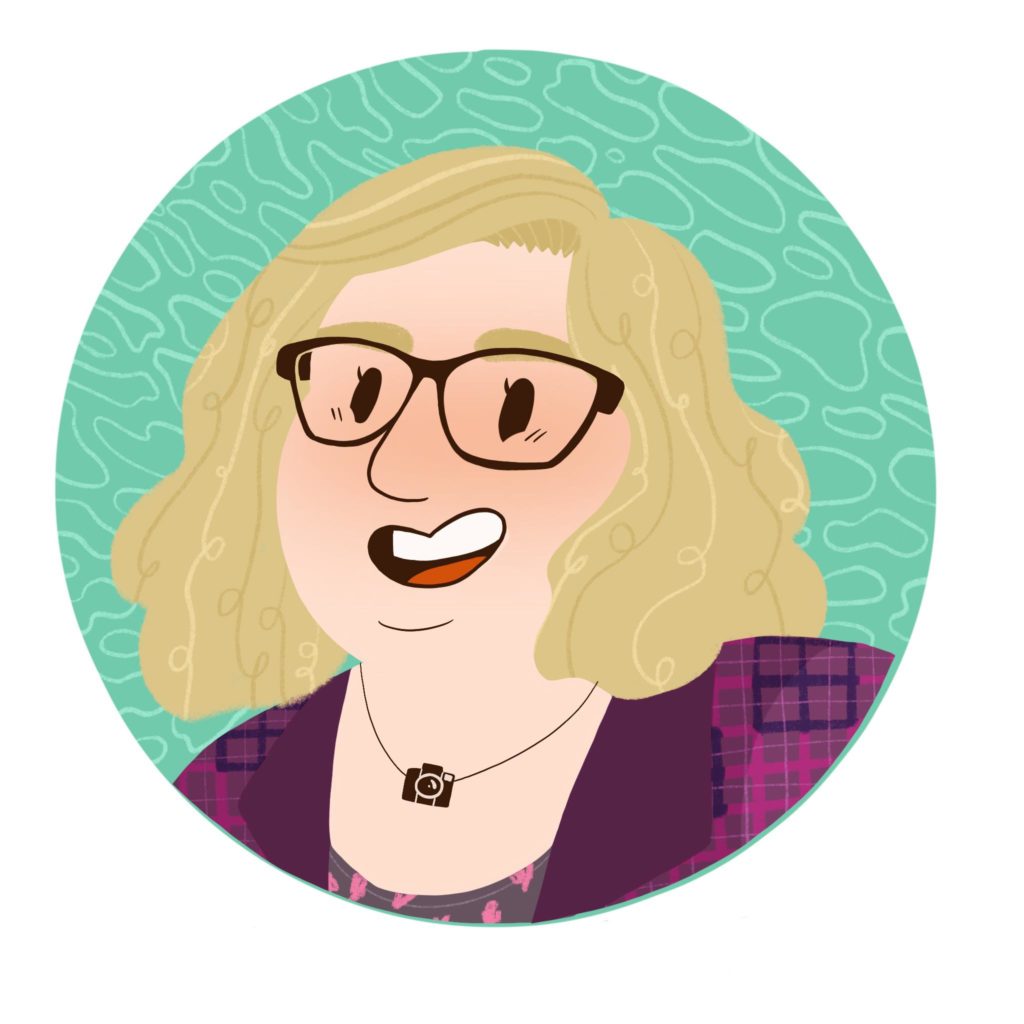
Every Monday, I send out my Body Liberation Guide, a thoughtful email jam-packed with resources on body liberation, weight stigma, body image and more. And it’s free. Let’s change the world together. Subscribe »
Host: Yeah. It’s very unfortunate that it’s still happening today when we’re in 2021. I thought we’d be way past this now, but I think you have to be loud to get your message out all the time. I don’t think it’s worth – I guess a lot of people would be hiding it or feel ashamed and shut down straight away. But I think having that loud voice and being an activist for this message is so empowering for everyone else to hear as well, who may be shutting down.
Lindley: Exactly. Yeah, because that is what as fat people, as women or feminine identified people, that’s what we’re taught. We’re taught to shrink. We’re taught to internalize blame. We’re taught to conform and to be decorative, and seeing somebody else reject that empowers you to. And when I started speaking out and speaking up, I was convinced that I was not only going to torpedo my business by doing so, but that I wasn’t going to have any friends. And it’s true that some people did self-select out of my social circles because it wasn’t a message they were particularly interested in hearing and are ready to hear and that’s fine, but so many more people have found me. And I’ve gone from shouting into the void with my opinions about bodies, to having thousands of people on my mailing list who respond and they tell me how it’s changing their attitudes and how it’s changing how they see themselves. And so for me, being that person who decided to speak out and take that risk, it was life-changing for me and for all the people who are getting to hear what I’m saying now. It gives them permission to get mad. It gives them permission to say, no, I won’t accept this treatment.
Host: I think it definitely empowers others as well who may have been shutting down. I think you’ve created a community where people feel comfortable open to express feelings they probably haven’t expressed before because they were too scared or they obviously, like you said, internalize that blame as well. So I think it’s amazing that you’ve created the community that I feel like it’s very rare for many people to openly share how they’re actually feeling about many different controversial topics. Because I think that, like you said, you’ll lose friends, opportunities and whatnot, but I think it’s important to stand your ground. Definitely express that.
Lindley: Yeah. And the thing is that I’m always very careful when I talk about this to know that I have a lot of privileges that allow me to do the speaking and to be very loud. I don’t have a full-time job working for someone else who might fire me if I say the wrong thing on the internet. I have some financial support from my husband, so I am able to grow my business in a way that works for me and not have to suppress my actual beliefs so that I don’t scare away potential clients. You know, I have the privilege of whiteness, which is particularly notable here in the states in our struggles over the last couple of years politically. But of course, it’s also a factor in Australia as well. It’s a factor everywhere on the planet. And I have the privilege of time. I can develop these thoughts and these messages. So, I’m always very careful to talk about these privileges because I don’t ever want anyone else to feel inadequate because they’re not being a capital ‘A’ activist or something, you know, just doing what you can within your own life is plenty.
Host: Definitely, definitely. My next question – I know we covered it a little bit, but what is your main message that you are trying to portray for others? I know that we did touch base on this probably just a few seconds ago, but if there were any other messages that you, I guess have for others that you want to provide to the community.
Lindley: My primary message is that all human bodies, especially fat bodies, because that’s my particular area of activism, but all bodies in all forms are normal. All bodies are worthy of being represented, photographed, seen in images, treated with dignity and respect equally. You know, should be able to equally access healthcare and careers and every other part of modern life because everybody is equally valuable.
Host: A hundred percent. Like I said before, it’s just sad that we’re still, even at this place where opportunities are lost, where people would feel ashamed to even just be in their own body because there’s such big expectations that they feel like they need to fit, whether that’s a body size or looking a certain way, which is very disappointing. But I think people like you are making a massive difference in that area.
Lindley: Thank you. It’s just when you realize the scope of it, you know, what incredible stingers are we missing because they’re fat? What scientists are we missing? What incredible scientific breakthroughs haven’t been made because the fat person who could have made that breakthrough couldn’t fit in the desks in the college classroom? What kind of great art are we missing? What kind of great politicians are we missing? You know, when you just realize the scope of that loss, it’s a tiny bit devastating.
Host: And I don’t think many people look at it that way either. I don’t think that it is a thought that any individual has, which is a bit scary, because it’s not something you think about every day when there are many individuals that are losing those opportunities that are so talented and have so much skillset. Like, it’s something that should be thought about a whole lot more than it is.
Lindley: That’s also top of mind for me right now, because I have five off the top of my head, different people that I know personally who are struggling to get graduate degrees. Some of them are here in the states and some are not because they literally can’t fit in the desks and in the classroom chairs. And every single one of them is fighting just to be able to sit in their classrooms. When you think about trying to learn in that kind of condition, it’s just the barriers, especially as you get further and farther up in body size, the barriers are just really extreme. So yeah, this just top of mind for me right now, and I want everybody to have access to everything they need to be successful.
Host: So they should like any other individual would as well.
Lindley: Yeah, yeah. And of course that doesn’t just apply to body size, but again, that’s sort of mine – that’s my lane.
Host: Yeah, definitely. So my next question is, since you live in America, in the US, do you feel there is any international differences, I guess, in a way that bodies are viewed, body positivity, all of that area?
Lindley: You know, cultural differences do make a difference. And in part, because I don’t fit into airplane seats because those airplane seats were made to exclude people like me. Again, to put the blame where it belongs. I’m not all that well-traveled. And so, I don’t ever want to… particularly with the way that the US tends to take up a lot of space on the world stage, I don’t ever want to guess attitudes in any country other than mine, but it does make a difference. And in some ways as fat phobic as the US is, we also have one of the best selections of plus size clothing as far as that goes; it’s not great, but at least it exists. And we do have some body positivity action going on here. And occasionally, people will email me from other countries and be like, “I’m in Austria. There’s nothing here. Do you know of anything in Austria?” I mean, and just to pick up a random country as an example. And I do know that, say in South Korea; it’s a very different environment because plastic surgery is so common. And then, of course, different countries have different average body sizes too, so it does vary per country. I think that’s an area I don’t want to get too far into, simply because again, I don’t want to tell other people what their conditions are like.
Host: There are so many different and other aspects that do contribute to what an individual would find an ideal body size or what, I guess, the perfect body would look like. It’s insane to see that a lot of those aspects are still around and people do base it off that, which is unfortunate. But I do slowly think we are slowly moving in the right direction, but I do think there’s a whole lot more that every country should do, not just Australia, not just the US. I think there’s obviously room to grow in that aspect considerably. But yeah, it’s wild to think about like how it has generated from what you were saying before and how it is now.
Lindley: And I feel like it’s so important to understand in part, because it lets us put the focus on the people who are most effected, which is black indigenous and people of color is the term that we’re currently using here in the states. And of course, in Australia, indigenous folks is very important to recognize, and to really put the focus on those folks because a white person like me, yeah, I get treated really crappily due to my body size, but it’s not always necessarily about me. It’s kind of the spillover damage. And that doesn’t mean that it’s not important or that I don’t deserve equality. It just means that it didn’t start being about me, and it’s not necessarily about me now.
Host: Definitely. Well, I guess the last question I had was where can people find you if they do want to look you up?
Lindley: I am at bodyliberationphotos.com, and that’s where you can find everything I do, which includes client photography, primarily clients in larger bodies. But of course, I’m happy to work with anybody. As well as stock photography, and that’s the photos that people buy and use in their marketing. I also have a web shop there called the Body Love Shop, and that’s where also my newsletter is. My newsletter is called The Body Liberation Guide. It’s a weekly newsletter that is absolutely packed with original writing about body size, and news, and pretty pictures of diverse bodies, and I’m very proud of it and it’s really great, so be sure to check that out.
Host: You should be. Well, thank you so much for talking with us this morning. I think that message that you have is so powerful and important, especially for people today. So, I think we’ll have an amazing response to this episode, so thank you for talking with me this morning.
Lindley: Thank you so much for having me.
Outro: So, that was that episode with Linley on all things to do with living in a larger body, and I hope you really feel as inspired and empowered by her story and how she is using it to empower other women and men who don’t really necessarily have the voice to speak up for themselves. But I think the message she is really trying to portray is such an amazing and important message. So be sure to check out all of her content on her website which I’ll leave in the description below. And if you did love this episode, we’d love for you to leave a review and let us know what you think. We can’t wait to speak with you in two weeks.

Every Monday, I send out my Body Liberation Guide, a thoughtful email jam-packed with resources on body liberation, weight stigma, body image and more. And it’s free. Let’s change the world together. Subscribe »
Hi there! I'm Lindley. I create artwork that celebrates the unique beauty of bodies that fall outside conventional "beauty" standards at Body Liberation Photography. I'm also the creator of Body Liberation Stock and the Body Love Shop, a curated central resource for body-friendly artwork and products. Find all my work here at bodyliberationphotos.com.

